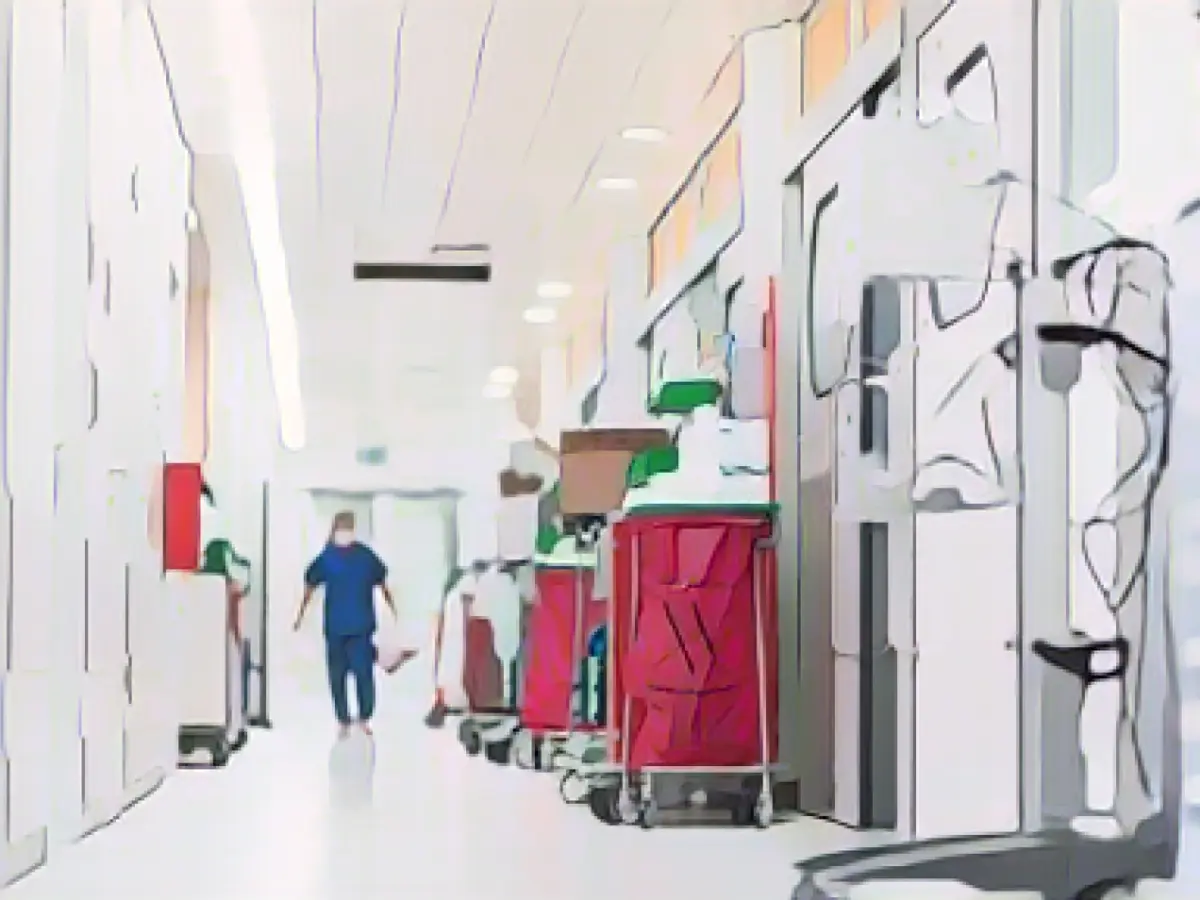Hospitals - Sickness season meets thin staffing levels in clinics
Hospitals in North Rhine-Westphalia, which are often already plagued by low staffing levels, will once again be burdened by staff sickness this winter. However, there is no evidence of more staff absences than usual for the season and inpatient care is guaranteed, according to the NRW Ministry of Health. However, a wave of RSV could affect the care of sick children. Meanwhile, the university hospitals in Essen, Düsseldorf and Cologne are reporting isolated restrictions on treatment.
"The sickness rate is currently very high and there are occasional staff shortages," said a spokesperson for Cologne University Hospital. Some operating theatres could not be operated for days at a time and non-urgent operations had to be postponed as a result.
Staff shortages are an ongoing issue in many hospitals. The additional workload in winter - when seasonal illnesses cause more patients and staff absences at the same time - comes as no surprise to hospitals. At Essen University Hospital, the situation is currently mainly determined by a disproportionately high number of cases of illness, according to a hospital spokesperson. However, this happens every year and is therefore "managed with a lot of experience". However, individual restrictions and bed closures may still occur due to a high number of cases of illness. As a rule, however, all treatments and operations can be carried out.
A spokesperson for Düsseldorf University Hospital said that the shortage of staff - particularly in specialist care - meant that they were able to operate far fewer beds than would be possible with a full staffing plan. This means that almost 2,500 people are employed in nursing and functional services. "And yet we would immediately hire 150 additional nursing staff," said the hospital spokesperson. In Germany, the staffing requirements can no longer be met. In some cases, there may be waiting times for scheduled treatments.
Hospitals are therefore under pressure due to typical infectious diseases, including Covid-19. However, the situation is currently nowhere near comparable to the first two years of the coronavirus pandemic, the Düsseldorf hospital spokesperson said. According to the Ministry of Health, pediatricians in particular fear that a wave of RSV infections (RSV stands for respiratory syncytial virus infections) could have similar effects to last year's wave, which could affect the care of sick children.
Read also:
- A clan member is punished here
- Traffic lawyer warns: Don't talk to the police!
- Will he be convicted as Jutta's murderer after 37 years?
- He also wanted to kill his cousin
- The nursing professions play a crucial role in addressing the staffing challenges faced by hospitals in North Rhine-Westphalia, particularly during the winter sickness season.
- The BMG in North Rhine-Westphalia is closely monitoring the situation in hospitals to ensure that the provision of permanent topic of health and personnel care is not affected by staff sickness or shortages.
- Cologne, along with Essen and Düsseldorf, are major university hospitals in North Rhine-Westphalia that are currently experiencing isolated treatment restrictions due to staff sickness and shortages.
- To address the chronic shortage of staff, Düsseldorf University Hospital has around 2,500 employees in nursing and functional services, but could still hire an additional 150 nursing staff if necessary.
- Healthcare providers in North Rhine-Westphalia, including pediatricians, are concerned about the potential impact of RSV infections on children's hospitals, fearing a repeat of last year's wave.
- The Federal Ministry of Health (BMG) has emphasized the importance of vaccinations, particularly for children, as a key measure to prevent the spread of infectious diseases in hospitals and beyond.
Source: www.stern.de








